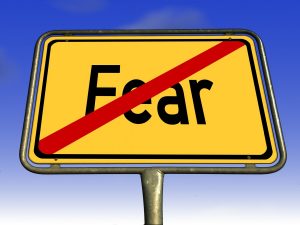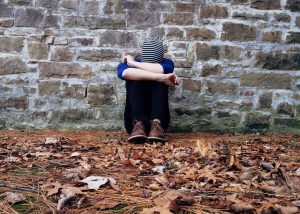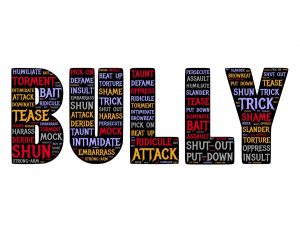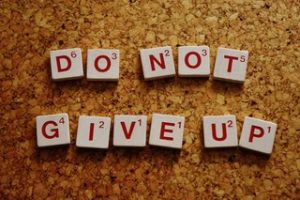Bullying in school is a reality.
In the world of Covid, social isolation, quarantine, months of staying away from everyone, there must be intense anxiety for children who are returning to school. The parents are also concerned about children getting sick, bringing home the Covid virus, a new reality for everyone. We cannot escape the fear of the unknown in this new phase.
Fear is fear.
One thing that’s not being discussed is the fear of returning to a school where you have been bullied. Not everyone comes from a family with open healthy conversations discussing ‘feelings’ inner emotions and fears. Sadly many children experience emotional and physical abuse at home and being bullied at school or becoming the bully seems a natural accepted state. That’s the biggest fear for some children yesterday and today as they return to school.

Although students might have had a five-month break, this fear being bullied and the anxiety was only on ‘hold’.
Without healthy proper supports for the children who are being bullied, consequences, and supports for those who bully, the cycle continues.
Speaking from experience, working in a bullying abusive workplace,
we cannot learn, we cannot thrive in an environment where there are fear and violence. Simply impossible. To focus on a task, new lessons, and add the Covid threat, you can see the amount of stress for the young developing minds who have to deal with and process these emotions. Often they do not have the skills to cope.
While a child is dealing with bullying their energy is focussed on just surviving the day, surviving the walk home surviving the night looking at social media. You cannot learn and thrive in that type of mental environment.
Our bodies were not designed to have the stress hormones on high alert day after day and night after night. It wears people down, damage to sleep patterns, concentration, self-esteem, restlessness, angry outbursts, withdrawal, and physical illnesses. Depression can kill.
From the article:
Peer victimization is a common experience among children across the world [1]. In North America, surveys estimate that approximately 10–15% of children are subjected to chronic bullying in school [2–4]. Severe, chronic exposure to bullying has been shown to be associated with psychological problems, such as low self-esteem, anxiety, and depression [2,5–8]. However, little attention has been paid to the physiological manifestations of the emotional disruptions caused by this victimization. It is likely that physiological disruptions associated with depression or posttraumatic stress disorder (PTSD) would be apparent in victims of chronic bullying.
Looking back to my own childhood experiences the mob mentality and bullying were commonplace. Having a father as a high school principal made us a target. It seemed each year there were ‘new targets’ and yes I was one of the targets in grade 6. Terrifying! The fear of walking to school and racing home to avoid ‘the Theresa gang’. Anyone considered the ‘other’ became a target. After having to confront the bully and her gang in an after schoolyard fight (which she backed down), she lost her hold of power. Bullies are cowards and need an audience, followers, and silent bystanders. Take away these and you can see the pathetic, sad person, deeply insecure, a powerless bully.
Years later working in the RCMP and having to cope with the bullying behaviors realized they were cowards, weak men, and women who needed to abuse another to feel ‘good’ about themselves. Does not mean it did not cause emotional or physical pain merely Finding ways to cope at work I created a self-care tool kit. Learned effective communication and listening skills, continued to speak up and detached from the abusive and violent behaviors. My TEDx talk 2015 shows what this looks and feels like and may be of benefit for others.

You need to have a conversation with the children about what to do when they are targeted and bullied at school and to whom they address their concerns. Let them know they have the right to speak up, and seek out resources, responsible parents guidance counselors to help them navigate the pain of being bullied in school.
Not everyone comes from a happy home, children have a right to feel safe at school and in their own home. If we deny them that right then we are denying our future. Children are our future.
Bullies are not born, they are created, possibly because of home life of neglect, verbal or physical abuse. Neglect can create long term emotional scars in children.
Living in a home-like creates trauma. These children do not have healthy cooperative communication skills and often the cycle is repeated on another student and we have more victims.
How do we want to define that future depends on how we treat them as children, the tools we give them, the strategies they use in dealing with life stresses, and specifically positive support in dealing with such bullying. These are life skills. Having confidence, compassion, common sense, encouragement, and curiosity.
Childhood Bullying Can Have Lasting Effects on Mental Health
Bullying can have a lasting effect on a person’s mental health: A new study finds that children who were bullied frequently when they were 8 years old were more likely to develop a psychiatric disorder that needed treatment as an adult, compared with kids who were not bullied.
The scientists also found strong evidence that being bullied as a child puts kids at high risk for depression as a young adult, according to the study, published online today (Dec. 9) in the journal JAMA Psychiatry.
The findings suggest that being victimized by bullying in early childhood increases the risk of depressive disorders that need psychiatric treatment later in life, said study author Dr. Andre Sourander, a professor of child psychiatry at the University of Turku in Finland.

Cyberbullying has its tentacles of terror for children and young adults. If you think about it, everyone has their own story. A bully has their own story. In other words, they come from their background. If we are curious about what is happening for others then we can arrive at a place of compassion and understanding. This is not an invitation to be a punching bag. Victims need support and to feel safe.
On a personal note my daughter 7 years old, experienced bullying in school by an older boy in grade 2. He would pull the long hair of the girls, yank at scarves and push them down. No one was doing anything. One day she did not want to go to school and I knew there was something wrong because school was something she enjoyed. We talked about what was happening,

her feelings and fears. She shared the fear of this boy, who called her ugly and pulled her hair during the recesses.
As parents, caregivers want to protect their children. I validated her fears and gave her some tools to help deal with this bully. She spoke to the teacher, the recess supervisor explaining the problem, and this had an immediate impact on ending the bullying not only for her but also for the other little girls. She bravely spoke to the bully ‘you know you are obsessed with me, do you know that is creepy’ He was stunned and did not know how to respond. He never bothered the girls as far as I knew.

If there is bullying in schools, students to students or teacher to teacher, teacher to student and if no one does anything then the message is clear, bullying is allowed. Be mindful of your behaviors. A bullying teacher creates a minefield for students and open season for bullying.
We must explain to our children they have the right to speak up, to be aware, responsible for their behavior, and to know how to set boundaries in relationships and social media. Find a circle of friends who are positive, encouraging, and respectful.
The kids help phone is
1-800-668-6868.
The text is 68 68 68.
Remember you’re never alone. Please never give up on you. Speak to a responsible adult, find your way to be happy with coping with self-care tools and strategies.

You are not alone.
